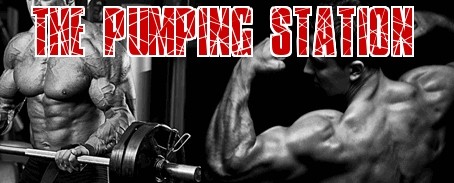Bodybuilding Nutrition Tips
When the primary objective is muscle gain nutrition is the key factor for success and that simply means you need to get out of the mindset of starting a diet. Any "diet" you start immediately implies that the diet will end when you go back to the normal eating habits that added fat, so forget about a diet and concentrate on a lifestyle change.
There are countless nutritional tips that could be added so we have selected a few of the most useful tips to help you start this new lifestyle change. We all are born with a different metabolic rate which is why most nutritionists will start off by working out the average calorie requirement for your age, weight and height.
Start a food journal
You first need to know how and where to find out your daily calorie requirement to help keep track of what you are eating and drinking. If you are into math there is a formula released by the ADA (American Dietetic Association) used to calculate your BMR (basal metabolic rate) which is the daily calorie consumption requirements if you were sleeping all day.
Men: 10 x weight (kg) + 6.25 x height (cm) - 5 x age + 5
Women: 10 x weight (kg) + 6.25 x height (cm) - 5 x age - 161
Eat 4 to 6 small meals a day
There are many reasons to eat more often during the day. From increasing energy to reducing body-fat by speeding metabolism and improving gastrointestinal health, the advantages are well-documented.
Know your protein requirements
After you have calculated your daily calorie consumption you will know exactly how many calories should be protein with 4 calories for one gram of protein. This is the key building blocks needed to build muscle and bodybuilders should eat 1 or 1.2 grams of protein per pound of bodyweight.
Know the different carbohydrates types and how to recognize them
You need to know the difference between a simple carbohydrate and a complex carbohydrate, but you also need to know the difference between a fibrous carbohydrate and a starchy carbohydrate is. This will have a major difference to the quality of the calories you take in.
Reduce high glycemic index (HGI) carbohydrates
The lower the glycemic index of carbohydrates eaten the less insulin will be released during digestion, and more absorption from the GI tract all giving the body a lot more time to utilize the carbohydrate molecules for fuel instead of just sending them to fat storage.
Although you need 2 grams of carbs for every 1 gram of protein the simple sugar fructose is the exception when it comes to eating low GI carbs. This should exclude your post-workout meal which should have complex carbs, good quality protein with BCAA's, and Glutamine.
Eat the correct fats
Losing fat does not mean eating zero fat because when calories are reduced your fat becomes the primary energy source. The access to this energy source is derived from good fat and not the bad fat which are saturated fats and trans fats. All fat has 9 calories per gram which is more than double of that found in carbs and protein. You should make a point of taking in flax seed and other Omega 3 fatty acid foods like salmon and fish oil.
Drink a lot of water
You need to stay fully hydrated all the time when building muscle which is why nutritionists recommend as high as a gallon of water each day. Lypolysis, or fat burning happens when adequate water supply does not slow the function of liver and kidneys.
Click Here to Sign Up for Your Free Bodybuilding Magazine Subscription
